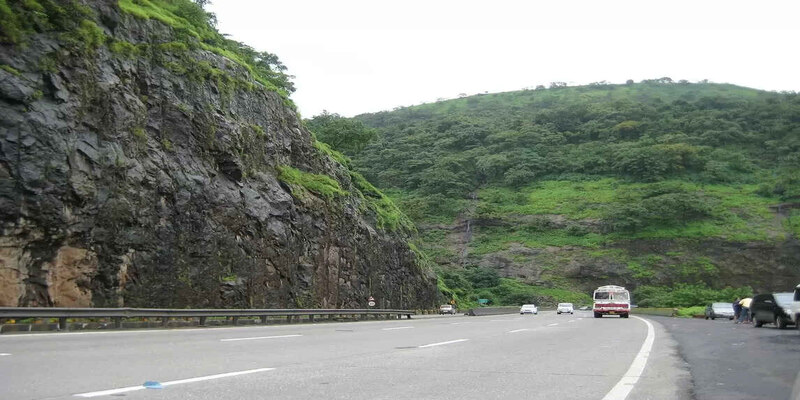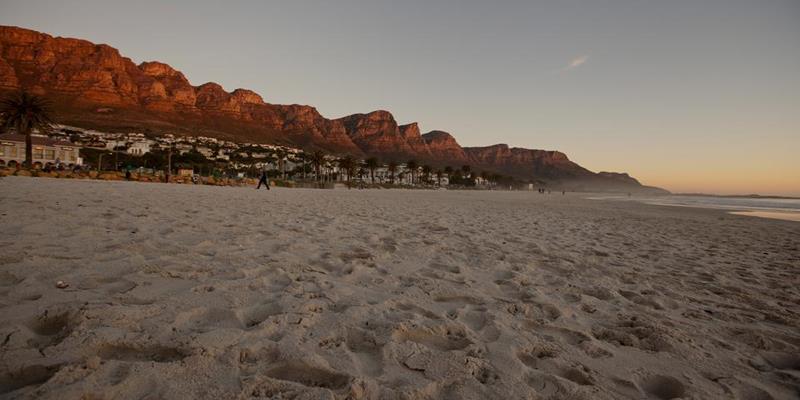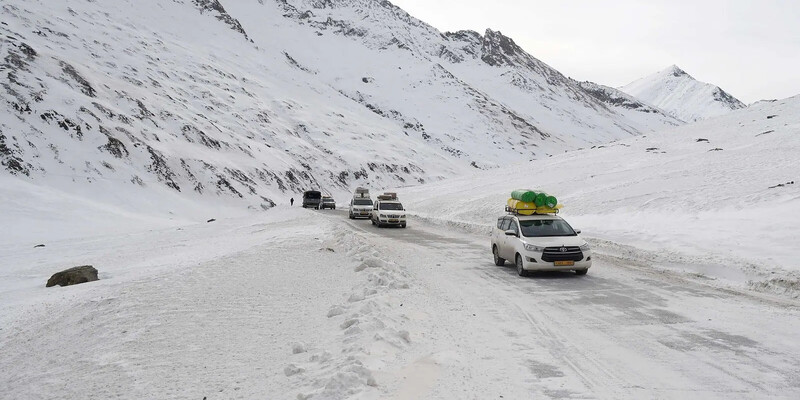The festival of lights, Diwali, holds great importance for Hindus and other communities. They have been practicing it for a long time, and it has become a national holiday. The light of the candles and sand lamps illuminates the streets and the people's hearts.
It is celebrated on the new moon day when houses are cleaned and decorated, and gifts are exchanged. Dewali is a source of prosperity, progress, togetherness, forgiveness, and spiritual enlightenment for those who celebrate.
Are you excited to learn more about this holy occasion? Let's explore Diwali and its history and why it is celebrated here. So, what are you waiting for? Sip your coffee and get started reading this article!
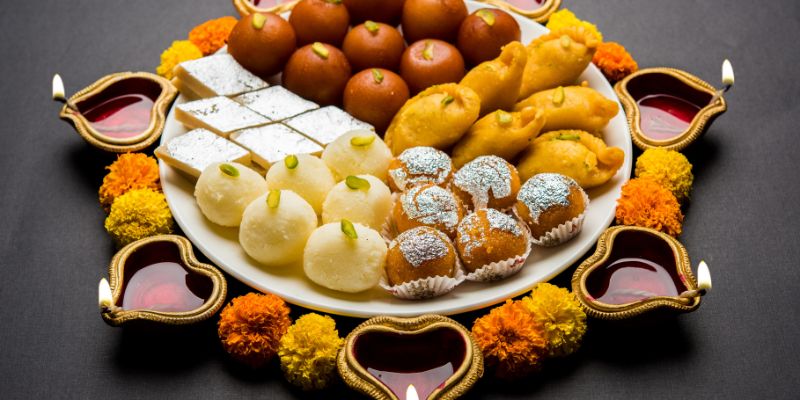
What is Diwali?
Diwali is derived from the word Deepavali, which means row of lights. The festival of light, Diwali, celebrates the success of light over the dark and good over evil. People celebrating this festival light candles and lamps and enlighten the dark.
Let's discuss what are the 5 days of Diwali. The festival of five days has most of the festivities on its third day, considered the main day of celebration. These five days are named:
- Dhanteras
- Naraka
- Chaturdasi
- Lakshmi Puja
- Govardhan Puja
- Bhai Dooj
History of Diwali
When was Diwali first celebrated? Diwali has been celebrated since October 15, 527 B.C., so it is hard to tell the exact reason for its origin. Different people believe in different reasons. Ramayana is considered the most famous reason for celebrating this festival.
It is believed that King Dasharatha ordered his son Rama to live in the forest for fourteen years and return home. Rama and his wife and brother obeyed his father's order. The demon king of Lanka, Ravana, took Rama's wife to his island.
To take revenge, Rama killed the demon king to save his wife. He then returned home after fourteen years, according to the orders. It was a happy time for the people. They celebrated his return by lighting up the houses and the whole city. That's how people started observing the event annually.
Hindu religion also says that one day, lord Vishnu became a dwarf to defeat the king named Bali. The king was very powerful and undefeatable. No one could defeat him due to his extraordinary strengths.
So Vishnu made a better plan to become a dwarf and take revenge on King Bali. That's how the king gave up on his powers, kingship, and all the wealth. So, people celebrated his defeat, which became a ritual among Hindus. Not only this but there are a lot of other stories which are believed to be the origin of Diwali.
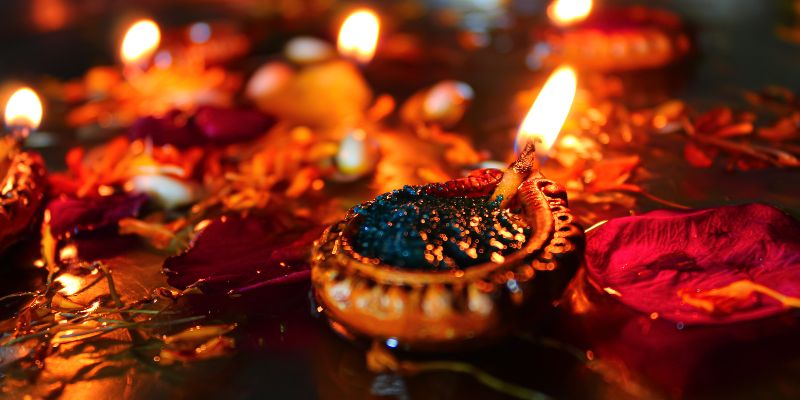
Diwali Celebration
People belonging to the Hindu, Jain, and Sikh religions celebrate this festival. It is celebrated in Singapore, India, and other South Asian countries with full festivities. It is a national holiday where people of different religions also participate in the celebration.
It is said that the Hindu, Sikh, and Jain communities living in the United States, United Kingdom, Australia, and other countries celebrate Diwali. They enjoy this event to the fullest.
The ceremony is held in autumn every year and spring in the south. It is celebrated during Kartik, which is a religious month of Hindus. Interestingly, Diwali is observed on one of the darkest days of the new moon.
The Five Days of Diwali
What are the 5 days of Diwali? Let us tell you that Dhanteras, Naraka, Chaturdasi, Lakshmi Puja, Govardhan Puja, and Bhai Dooj are the five important days of this festival. Indians have different activities each day. The Diwali 2024 date is Friday, November 1.
- The first day of this event is for deep cleaning of the homes. The observant people also decorate their homes with rangoli. Rangoli is a piece of art created on the floor with colorful rice, flowers, and sand.
- On the second day, they prepare for the special food and pray for themselves and their ancestors.
- Then comes the third day of Diwali. The candles and lamps are lighted, and family gatherings are arranged.
- The fourth-day celebrations vary according to the region. It is usually celebrated mainly by couples. The husbands buy beautiful gifts for their wives.
- The last and fifth day is for the siblings. The brother and sisters celebrate their love and bond.
Significance of Diwali
Every cultural or religious occasion has some significance. The same is true for Diwali, and it is celebrated to have fun and a better year ahead. People give and forgive, unite, worship, and do other significant things to make a good start to the next year.
Forgiyes:
Forgiveness is one of the most important practices during Diwali. Everyone forgives the other and gives them beautiful presents on this special occasion. Everyone wakes up early, which is also good for physical and spiritual health. Discipline and efficiency are also enhanced during these days.
Unity:
Diwali also plays a significant role in uniting people together. They gather at each other's places and exchange kind words. The tight hugs and sweet greetings are enough to soften everyone's heart and fill them with pure joy.
Prosperity:
Diwali also symbolizes progress and prosperity. The merchants in India pray for their work and open a new account book for prosperity. Everyone tries to buy new clothes for their families.
Spiritual Growth:
The lights of Diwali are not only to illuminate the homes and streets. It is also for the spiritual illumination. The Hindus say these lights illuminate hearts and their souls when they sit in quietness and peace, which lights up their minds and provides eternal bliss.
Conclusion
The five days of Diwali are important to Hindus, Jains, and Sikhs. It symbolizes progress, spirituality, unity, and forgiveness. Different stories are believed to be the origin of the Diwali. For couples and siblings, different days of this occasion include cleaning, decorating, and meetups. People celebrate the victory of good over the bad and light over the dark.

